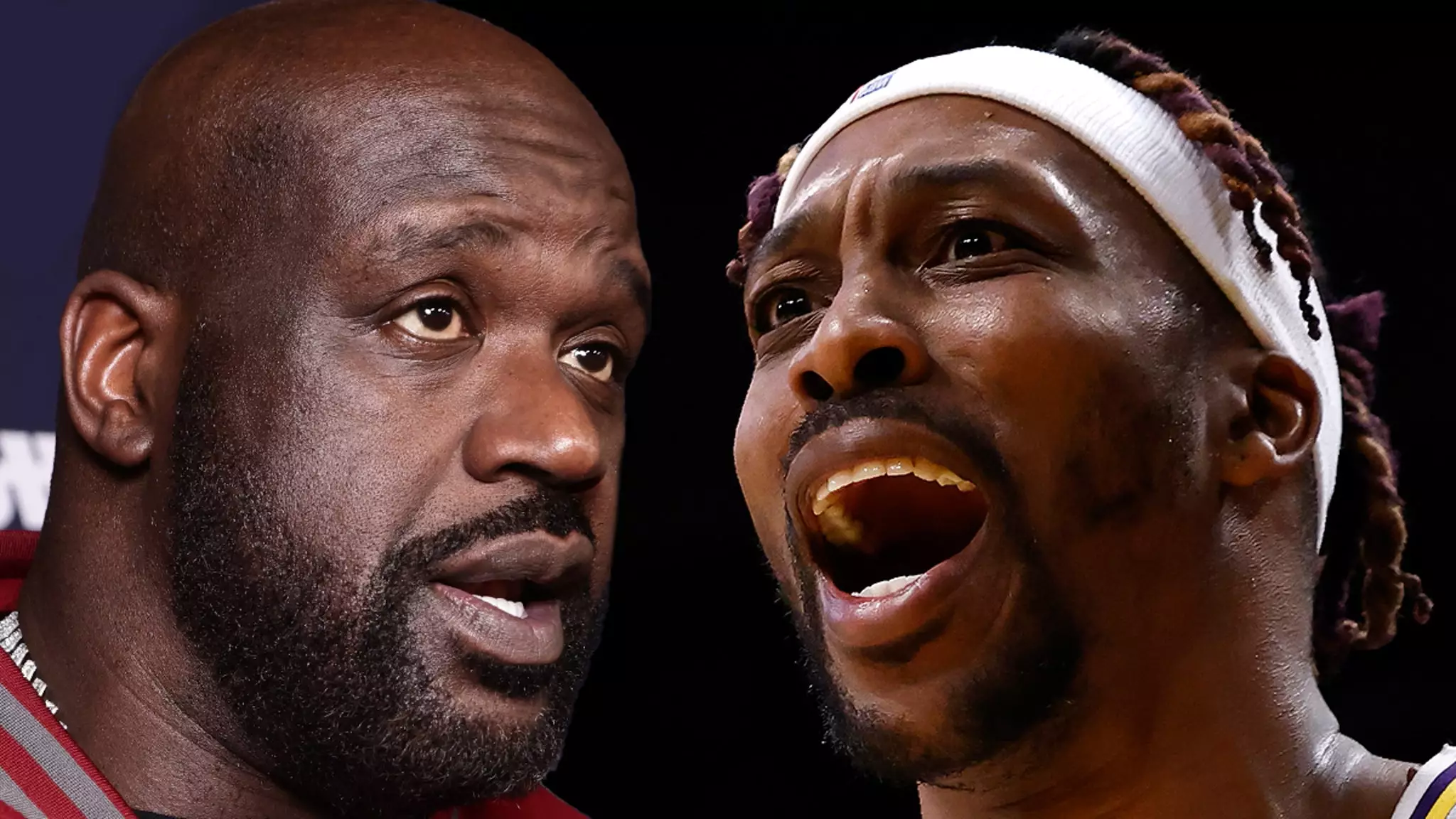The basketball world is no stranger to rivalries, but the feud between Shaquille O’Neal and Dwight Howard has persisted far beyond the hardwood. In an informal announcement, Shaquille revealed that he has decisively severed ties with Howard, stating he has “deleted” him from his life. This declaration appears to signify not just a moment of closure for Shaq but also serves as a culmination of years spent in a contentious spotlight, primarily ignited by Howard’s appropriation of the “Superman” moniker, a title that Shaquille made iconic during his illustrious career.
Recently, Howard sparked a resurgence of animosity during a podcast episode where he expressed his frustrations, even humorously hinting at a potential face-to-face confrontation at the TNT studios. His aggressive tone revealed a pent-up discontent regarding their history, suggesting violence as a method for resolving deep-seated issues. Shaquille, an established figure in sports entertainment, was quick to respond on social media, dismissively acknowledging Howard’s grievances with a cutting retort. The dynamic between these two former giants of the NBA reflects not only their personal conflicts but also the larger culture of competitive masculinity that often surfaces in professional sports.
In a move that many would consider a hallmark of modern celebrity feuds, Shaquille took to Instagram and Twitter to target Howard, proclaiming that he has no interest in his former rival. His comments made clear that he found the entire situation laughable and accused Howard of being overly sensitive. Shaquille punctuated his message with hashtags that implied a deeper emotional reasoning behind his actions, such as those suggesting Howard’s need for affirmation. The most stinging of these was the phrase “Now you’re dead to me,” which encapsulated the finality of their clash in a way that felt both public and personal.
Howard, however, was not going to retreat quietly. In a direct response, he shot back, accusing Shaquille of harboring insecurities that were far beneath the surface of their rivalry. His critique extended beyond mere insults; he recounted personal messages from Shaquille that seemingly undermined Shaquille’s credibility in claiming to disregard him. Howard’s insistence that Shaquille’s history of jabs and barbs stemmed from envy serves as a critique not just of Shaquille but also of societal expectations placed on athletes, where emotional struggles are often masked by public bravado.
As the basketball community watches this unfolding narrative, one cannot help but consider the implications of such rivalries in contemporary sports culture. Both Shaquille and Howard exemplify the way personal relationships can become deeply enmeshed in public perception, leaving fans to contemplate the line between professionalism and personal vendetta. Whether this feud will dissipate entirely remains to be seen, but the valuable lessons about communication, respect, and the complexities of male identity in sports are clear. In the end, the rivalry may educate us more about human nature than basketball itself, providing a narrative that transcends the sport’s competitive spirit.

